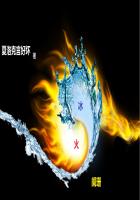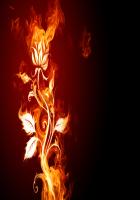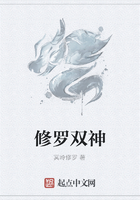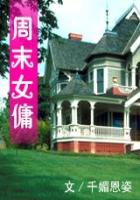THE BANQUET
It was striking nine. Therefore, Ruth thought that she had achieved her object, Wilding imagined that all was lost. It needed the more tranquil mind of Nicholas Trenchard to show him the fly in madam's ointment, after Wilding, in half a dozen words, had made him acquainted with the situation.
"What are you going to do?" asked Trenchard.
"Run to Newlington's and warn the Duke - if still in time.""And thereby precipitate the catastrophe? Oh, give it thought. It is all it needs. You are taking it for granted that nine o'clock is the hour appointed for King Monmouth's butchery.""What else?" asked Wilding, impatient to be off.
They were standing in the street under the sign of The Ship, by which Jonathan Edney Mr. Trenchard's landlord - distinguished his premises and the chandler's trade he drove there. Trenchard set a detaining hand on Mr. Wilding's arm.
"Nine o'clock is the hour appointed for supper. It is odds the Duke will be a little late, and it is more than odds that when he does arrive, the assassins will wait until the company is safely at table and lulled by good eating and drinking. You had overlooked that, I see. It asks an old head for wisdom, after all. Look you, Anthony. Speed to Colonel Wade as fast as your legs can carry you, and get a score of men.
Then find some fellow to lead you to Newlington's orchard, and if only you do not arrive too late you may take Sir Rowland and his cut-throats in the rear and destroy them to a man before they realize themselves attacked. I'll reconnoitre while you go, and keep an eye on the front of the house. Away with you!"Ordinarily Wilding was a man of a certain dignity, but you had not thought it had you seen him running in silk stockings and silver-buckled shoes at a headlong pace through the narrow streets of Bridgwater, in the direction of the Castle. He overset more than one, and oaths followed him from these and from others whom he rudely jostled out of his path. Wade was gone with Monmouth, but he came upon Captain Slape, who had a company of scythes and musketeers incorporated in the Duke's own regiment, and to him Wilding gasped out the news and his request for a score of men with what breath was left him.
Time was lost - and never was time more precious - in convincing Slape that this was no old wife's tale. At last, however, he won his way and twenty musketeers; but the quarter-past the hour had chimed ere they left the Castle. He led them forth at a sharp run, with never a thought for the circumstance that they would need their breath anon, perhaps for fighting, and he bade the man who guided them take them by back streets that they might attract as little attention as possible.
Within a stone's-throw of the house he halted them, and sent one forward to reconnoitre, following himself with the others as quietly and noiselessly as possible. Mr. Newlington's house was all alight, but from the absence of uproar - sounds there were in plenty from the main street, where a dense throng had collected to see His Majesty go in - Mr. Wilding inferred with supreme relief that they were still in time. But the danger was not yet past. Already, perhaps, the assassins were penetrating - or had penetrated - to the house; and at any moment such sounds might greet them as would announce the execution of their murderous design.
Meanwhile Mr. Trenchard, having relighted his pipe, and set his hat rakishly atop his golden wig, strolled up the High Street, swinging his long cane very much like a gentleman taking the air in quest of an appetite for supper. He strolled past the Cross and on until he came to the handsome mansion - one of the few handsome houses in Bridgwater - where opulent Mr. Newlington had his residence. A small crowd had congregated about the doors, for word had gone forth that His Majesty was to sup there. Trenchard moved slowly through the people, seemingly uninterested, but, in fact, scanning closely every face he encountered.
Suddenly, out of the corner of his eye, he espied in the indifferent light Mr. Richard Westmacott.
Trenchard passed him, jostling him as he went, and strolled on some few paces, then turned, and came slowly back, and observed that Richard had also turned and was now watching him as he approached. He was all but upon the boy when suddenly his wrinkled face lighted with recognition.
"Mr. Westmacott!" he cried, and there was surprise in his voice.
Richard, conscious that Trenchard must no doubt regard him as a turn-tippet, flushed, and stood aside to give passage to the other. But Mr. Trenchard was by no means minded to pass. He clapped a hand on Richard's shoulder. "Nay," he cried, between laughter and feigned resentment. "Do you bear me ill-will, lad?"Richard was somewhat taken aback. "For what should I bear you ill-will, Mr. Trenchard?" quoth he.
Trenchard laughed frankly, and so uproariously that his hat over-jauntily cocked was all but shaken from his head. "I mind me the last time we met, I played you an unfair trick," said he. His tone bespoke the very highest good-humour. He slipped his arm through Richard's. "Never bear an old man malice, lad," said he.
"I assure you that I bear you none," said Richard, relieved to find that Trenchard apparently knew nothing of his defection, yet wishing that Trenchard would go his ways, for Richard's task was to stand sentry there.
"I'll not believe you till you afford me proof," Trenchard replied.
"You shall come and wash your resentment down in the best bottle of Canary the White Cow can furnish us.""Not now, I thank you," answered Richard.
"You are thinking of the last occasion on which I drank with you," said Trenchard reproachfully.
"Not so. But ... but I am not thirsty."














